The summer travel season is already off to a record-breaking pace, and it looks like the biggest crowds are yet to come. Today (June 27) and Friday (June 28) could each compete for the busiest days ever at U.S. airports as the Fourth of July travel rush gets off to a blazing start.
More travelers passed through Transportation Security Agency checkpoints on Sunday, June 24, than on any day in the agency’s nearly 23-year history. Monday was the third busiest day of all time. The five busiest days ever at TSA checkpoints have all occurred since Memorial Day weekend.
And, by all accounts, we’re just getting started. Perhaps the summer’s biggest holiday rush is now upon us.
Want more airline-specific news? Sign up for TPG’s free biweekly Aviation newsletter.
More than 70 million Americans will travel at least 50 miles over the Independence Day rush, according to AAA. That’s a 5% jump from last year and an 8% spike over 2019.
That will certainly mean busy airports. The Federal Aviation Administration expected to handle some 54,000 flights Thursday — the most of any day in 2024.
These crowds will likely show up throughout your holiday travels, too. You’re sure to see the throngs of people whether you’re visiting a theme park in Orlando, a popular beach destination or an iconic attraction in Europe.
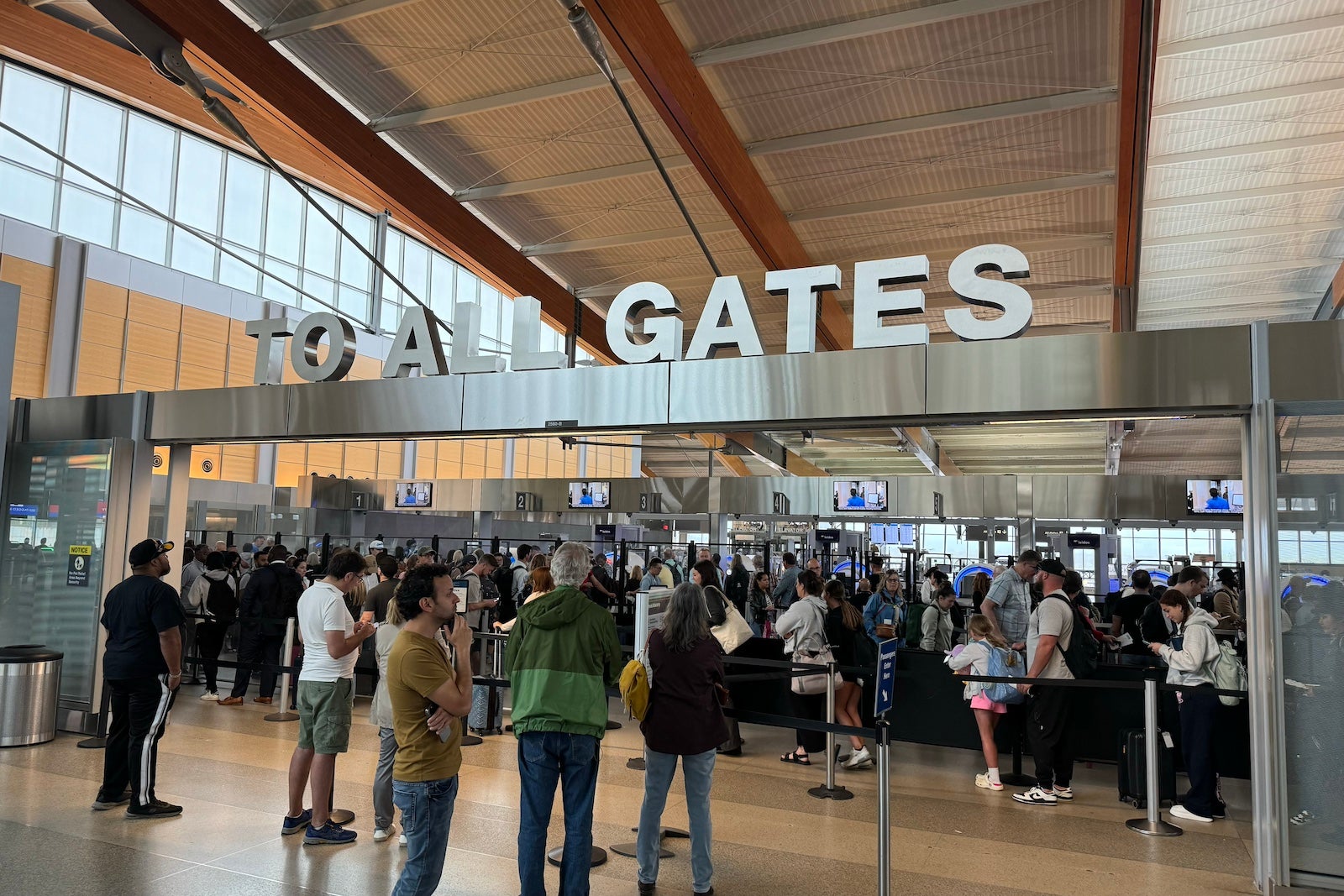
Still, there’s plenty of reason to be optimistic this summer holiday season.
Unlike 2022 and 2023, it’s a lot easier to find a good deal on airfare, and there are plenty of chances to score a great mileage redemption while you’re at it.
Plus, those meltdowns that made air travel such a headache in 2022 appear largely behind airlines, with cancellation rates far better than this time two years ago.
Here’s what to know, whether you’re still booking that Fourth of July getaway or already turning your eyes to packing.
Loyalty basics: Best ways to earn airline miles
What is the worst day to travel for Fourth of July?
Unlike Memorial Day, which always falls on the same day of the week, predicting the busiest travel day for Fourth of July is a bit trickier.
Last year, the holiday fell on a Tuesday, and the Friday before the Fourth of July (June 30) proved to be the busiest day of the rush. A whopping 2.8 million passengers passed through TSA checkpoints that day. At the time, that was a single-day record, but it has since been topped seven times — including twice just in the past week.
This year, the Fourth of July falls on a Thursday.
Looking at the travel projections, I’m reminded a bit of the pattern we typically see around Thanksgiving, which, of course, always falls on a Thursday itself.
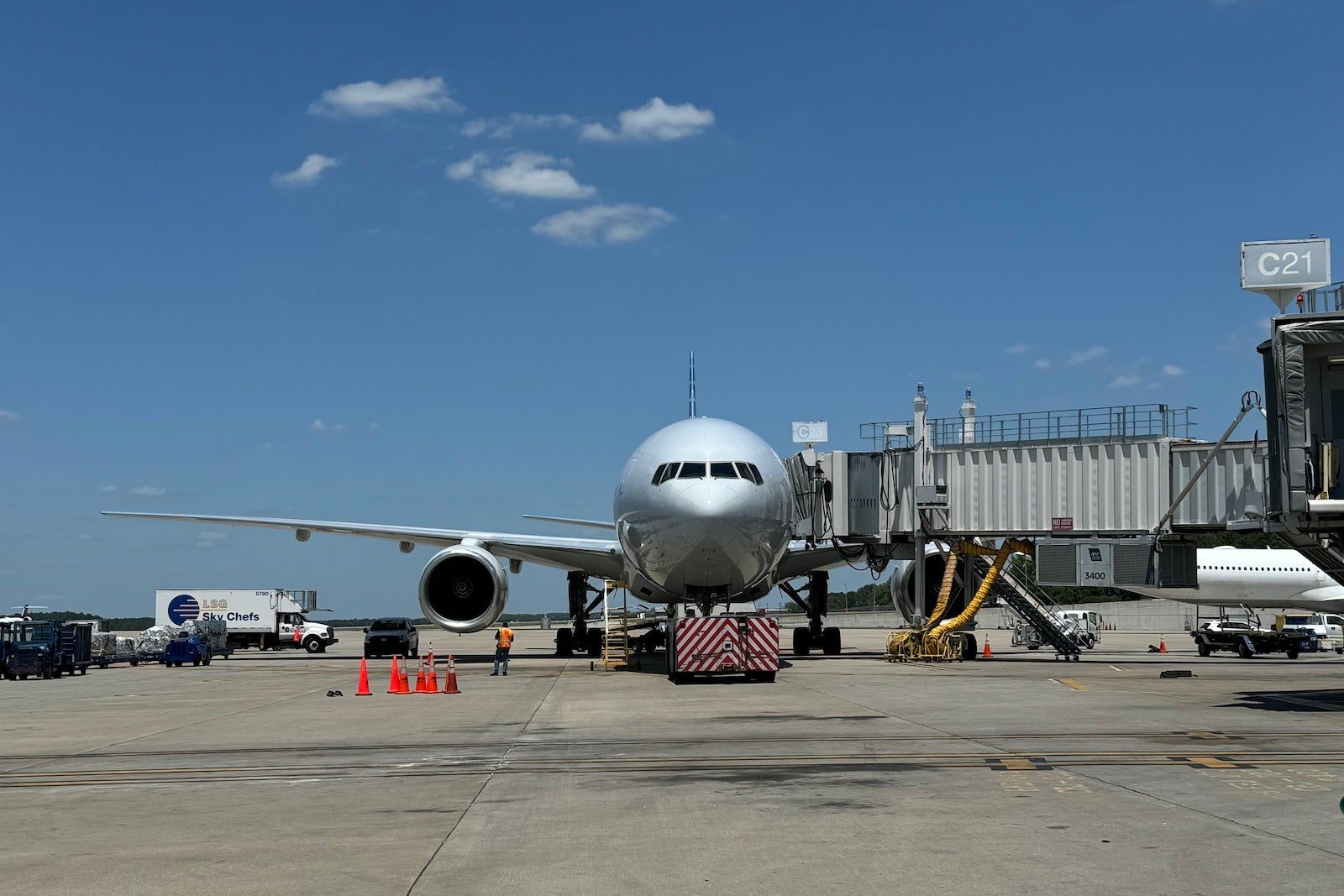
A busy weekend before the holiday
It looks like there will be a sizable early rush of travelers getting a headstart on their travels or perhaps turning the entire week into a getaway.
The world’s busiest airport, Hartsfield-Jackson Atlanta International Airport (ATL), expects this Friday, June 28, to be among its busiest days of the travel rush. There are 367,000 passengers expected to pass through ATL that day, airport leaders shared Monday.
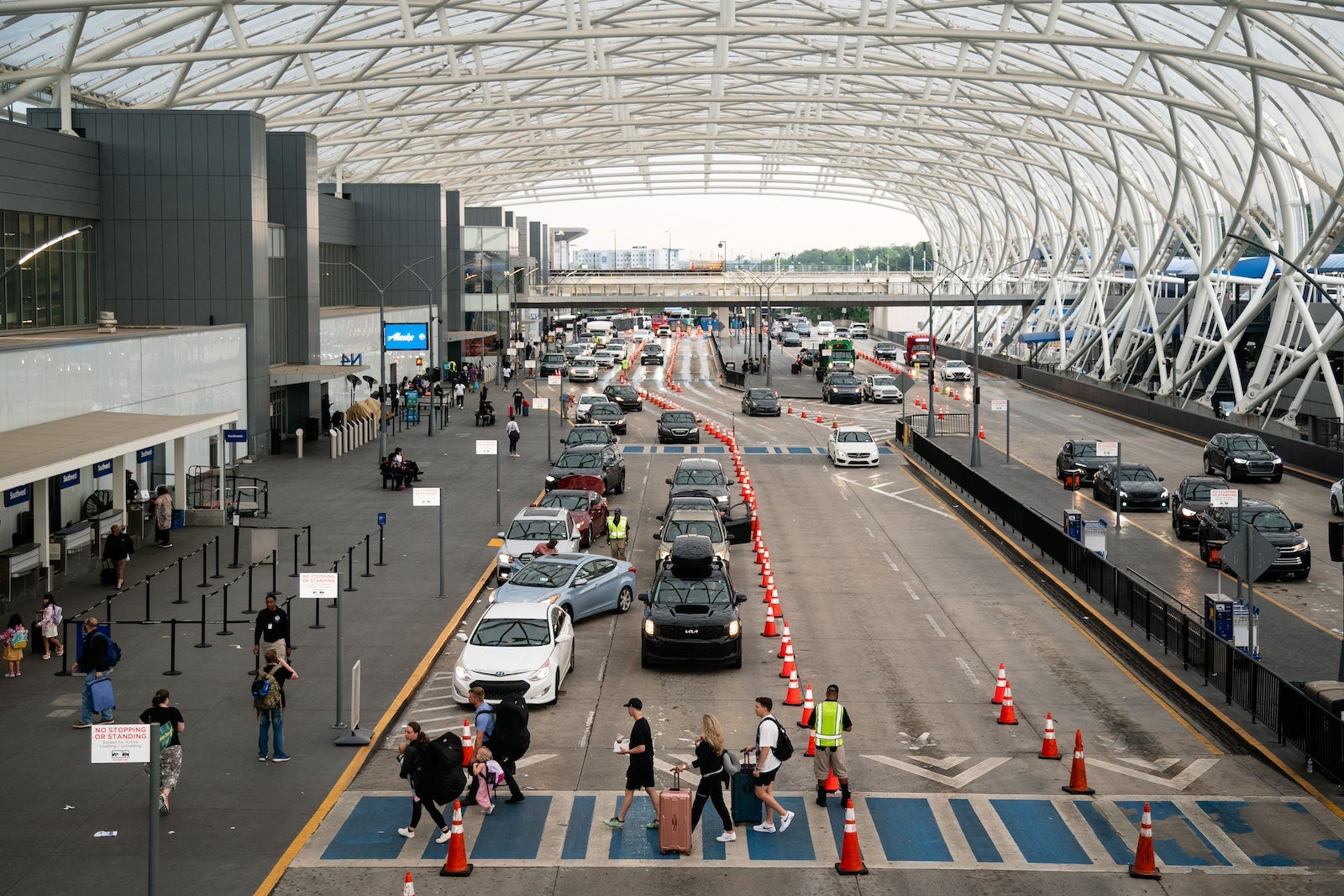
For its part, United Airlines predicts Saturday, June 29, will be among its busiest days in terms of volume.
Altogether, the carrier expects its busiest Fourth of July on record, with plans to fly more than 5 million customers between June 28 and July 8 — up 7% over last year.
July 3 final rush expected
Like Thanksgiving, the Wednesday immediately before the holiday is shaping up for a significant last-minute push, too.
Airlines have the most scheduled seats July 3, booking app Hopper reported.
Return crowds expected the Sunday, Monday after the holiday
To complete our Thanksgiving analogy, keep this fact in mind: The Sunday after Turkey Day is often the busiest airport day of the entire travel rush. We could likely see a similar pattern play out next week following the Fourth of July.
American Airlines notes Sunday, July 7, will be its busiest travel day of the entire summer, with 6,500 flights expected. That’s a big part of what the Fort Worth-based carrier says will be its busiest Fourth of July rush ever; throughout the holiday period, it expects to carry some 7.2 million passengers — up 8% over last year.
How common is it for flights to be delayed or canceled?
For those worried about another air travel meltdown, rest assured: It has been a relatively strong start to the summer so far.
Since Memorial Day weekend, U.S. carriers have collectively canceled 1.4% of flights, according to data from FlightAware.
That’s a far cry from the 2.9% of flights canceled by this point in 2022.
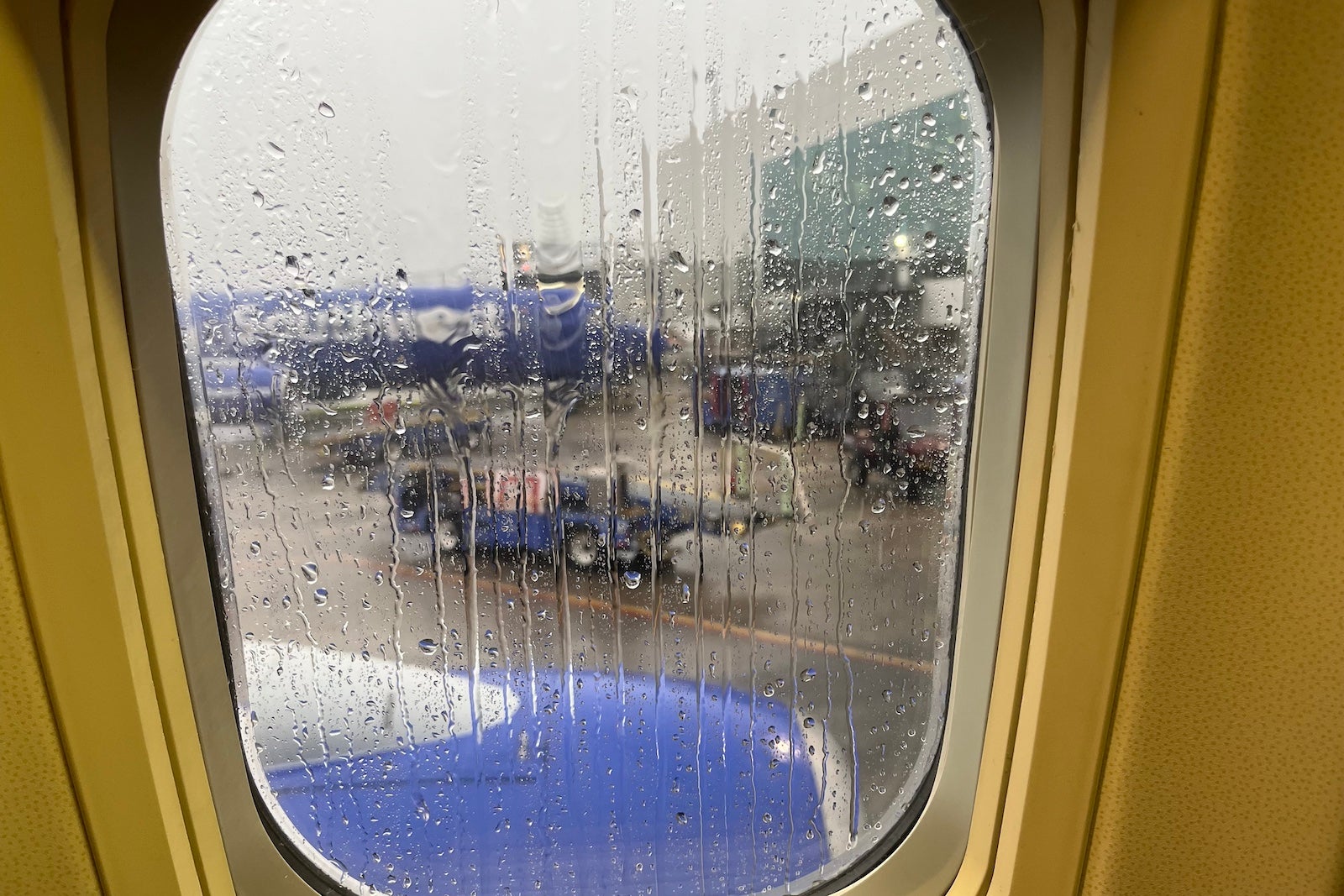
However, cancellation rates have been a tad higher than they were at this point last summer, when U.S. carriers had canceled just 0.9% of flights, per FlightAware.
Delays
As for delays, U.S. airlines have seen just shy of a quarter of flights — 24.2% — delayed so far this summer, FlightAware shows.
That’s up slightly from both 2022 and 2023.
As the FAA continues to deal with a nationwide shortage of air traffic controllers, weather is often the most complicating factor.
Summer thunderstorms — particularly in heavily trafficked corridors like the Northeast, mid-Atlantic or Florida — can cause cascading disruptions across the country. This is why you might run into a situation where your flight is delayed because of weather, even with blue skies outside.
The FAA warned of potential storms Thursday in the Southeast — including in Florida and in the Denver area where there are major hub airports.
Pack your patience for a busy travel day! Winds could affect travel in the NY area and t-storms may impact flights later in Atlanta, Florida and Denver. Check with your airlines for your flight status and get airport updates at https://t.co/smgdqJN3td. #FAAWeatherSquad #4thofJuly pic.twitter.com/FAJBp4BiMe
— The FAA ✈️ (@FAANews) June 27, 2024
That being said, the early results this summer are fairly encouraging overall.
As a precaution, though, read up on your rights as a passenger before you travel. Also, be sure to book your trip with a credit card that includes trip insurance protections; this can offset extra costs incurred for hotel nights, meals and ground transportation in the event of a disruption.
Are flight prices coming down?
Perhaps the best news for travelers so far this summer has been the far-more-available flight deals and redemption opportunities.
Though the holiday may bring elevated fares compared to the rest of summer for many itineraries, Hopper found average domestic holiday airfare is down around 18% from last year.
Hoping to score a flight to Europe? Those fares are down roughly 37%, Hopper projected.
As is often the case with major holidays, your best bet to snag a last-minute deal may be to depart on the holiday itself and return a bit later than the crowds. Try returning on the Tuesday or Wednesday after the holiday, if your schedule allows.
Driving for Fourth of July
As always, the largest share of holiday travelers will be driving.
The afternoons of Wednesday, July 3, and Sunday, July 7, will be the most congested nationwide, according to transportation data and insights firm Inrix.
The good news: Current gas prices sit at $3.44 per gallon of regular. They are down from around $3.60 a month ago and around $3.57 one year ago.
Filling up on a Fourth of July getaway? Don’t forget to use a credit card that earns bonus rewards for gas.
Tips for Fourth of July travel 2024
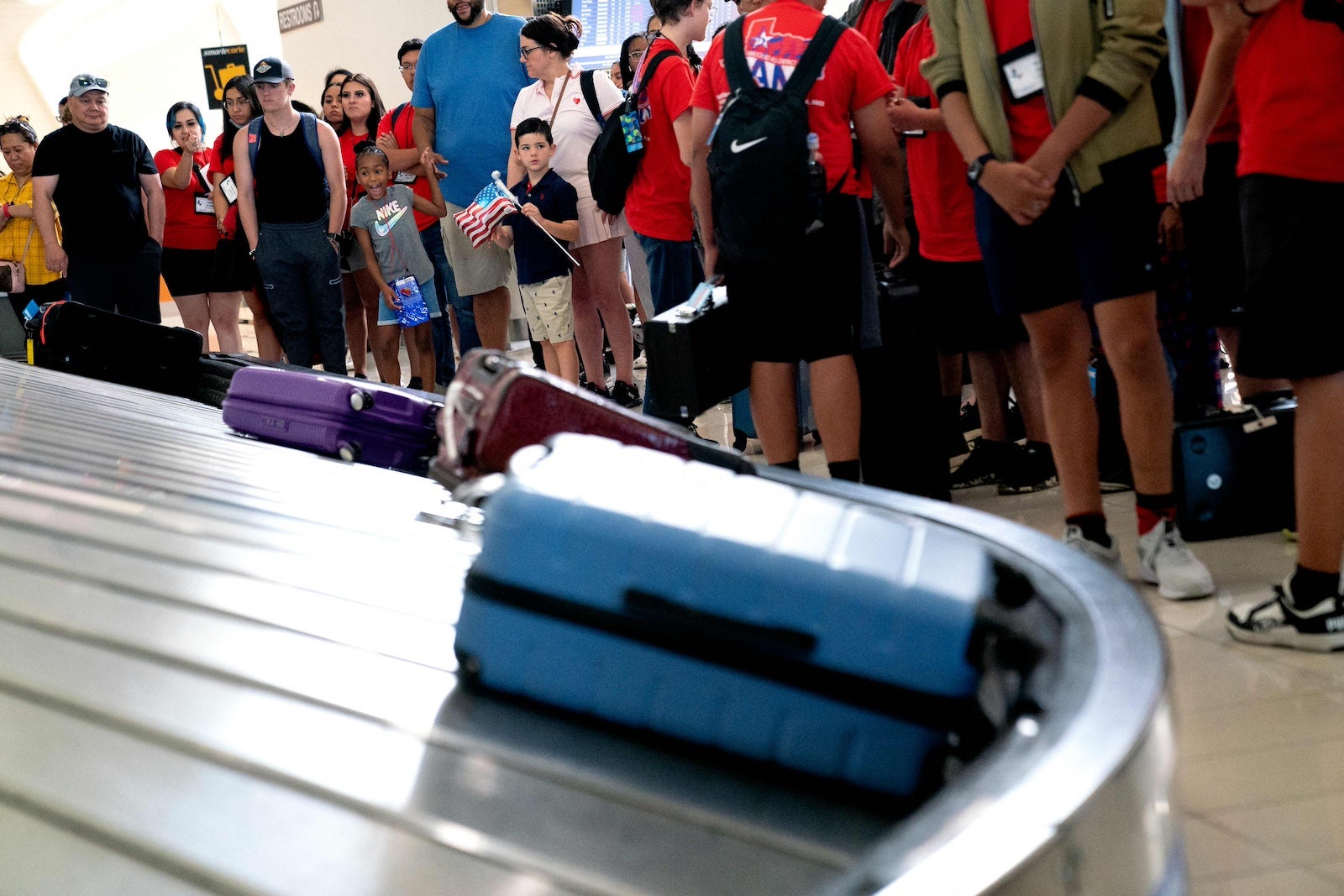
Below are some steps you should take if you plan to travel this Fourth of July.
Use Google Flights to comparison shop
Search fares on numerous airlines at once with Google Flights. In a significant recent change, the site now also displays prices for Southwest Airlines — the fourth-largest carrier in the U.S.
Once you find the itinerary you like using the search engine, you can go and book it directly with the airline.
Book cancelable hotel reservations
Booking a hotel reservation that you can cancel penalty-free is often your best bet over the modest price savings you’ll find by prepaying.
However, it’s a good idea to keep your booking flexible if you’re traveling to a major U.S. city. Hopper says hotel rates in major cities like New York and Las Vegas have been trending downward lately as check-in approaches.
Your best bet, in that case, is to book a standard room reservation. (In other words, don’t pre-pay.) That way, if the price later drops, you can cancel and rebook at the lower price point.
Same story with points
Since numerous hotel chains now use dynamic award pricing, which can fluctuate with cash prices, you should employ a similar strategy if you book with points. Most loyalty programs will redeposit your points if you cancel an award stay. Then, you can rebook at the lower redemption rate if you find a lower points price after booking.
Book your airport parking online
Save money, time and stress by making those airport parking reservations in advance instead of searching for a spot and paying full price on the day of.
Know your programs: TSA PreCheck, Global Entry, MPC, MyTSA
Global Entry and TSA PreCheck are your best friends when the airports are packed. If you aren’t a member of either program, you still have options to make your travel smoother.
Download the MyTSA app to monitor wait times at the security checkpoint you’ll be visiting.
If you’re returning from a trip abroad and don’t have Global Entry, you can still cut the longest lines by submitting your information to the free U.S. Customs and Border Protection Mobile Passport Control app.
Related reading:
- When is the best time to book flights for the cheapest airfare?
- The best airline credit cards
- What exactly are airline miles, anyway?
- 6 real-life strategies you can use when your flight is canceled or delayed
- Maximize your airfare: The best credit cards for booking flights
- The best credit cards to reach elite status
- What are points and miles worth? TPG’s monthly valuations



